42 understanding sugar content food labels
How to Understand Sugar on Nutrition Labels - The Healthy Employee Labelling on the front of packaged foods is useful at a glance to decide which food or drink is high in sugar. As with other selected nutrients, it is often colour coded, ('traffic light') based on set criteria for low, medium and high amounts. If sugar is colour-coded red this means high/unhealthy levels. If green, this means a healthier ... Understanding food labels fact sheet - NDSS Understanding how to read food labels can help you choose foods with more fibre and less saturated fat, salt (sodium), added sugars and kilojoules. Food labels will typically include a nutrition information panel, list of ingredients, the 'use by' or 'best before' date and identify potential food allergens and additives.
food labels Archives - Diabetes Care Community Understanding sugar content on food labels. March 30, 2018 by Diabetes Care. Understanding sugar content on food labels is important, to ensure that you're consuming healthy amounts. Reading the ingredient lists and nutrition facts tables on packaged foods is a helpful way for you to check what kind, and how much, sugar a product has. ...

Understanding sugar content food labels
Understanding Food Labels | The Nutrition Source | Harvard T.H. Chan ... Plain dairy milk will show 12 grams of Total Sugars (naturally occurring from lactose) per cup but zero Added Sugars. A cup of strawberry yogurt may show 20 grams of Total Sugars of which 10 grams are Added Sugars (10 grams are naturally occurring from lactose and the other 10 grams are from an added sweetener). Reading food labels: Tips if you have diabetes - Mayo Clinic A sugar-free label means that one serving has less than 0.5 grams of sugar. When you're choosing between standard products and their sugar-free counterparts, compare the food labels. If the sugar-free product has noticeably fewer carbohydrates, the sugar-free product might be the better choice. eur-lex.europa.eu › legal-content › ENEUR-Lex - 32011R1169 - EN - EUR-Lex - Europa (4) According to Regulation (EC) No 178/2002 of the European Parliament and of the Council of 28 January 2002 laying down the general principles and requirements of food law, establishing the European Food Safety Authority and laying down procedures in matters of food safety (3) it is a general principle of food law to provide a basis for consumers to make informed choices in relation to food ...
Understanding sugar content food labels. How To Read Food labels for Sugar | My Sugar Free Kitchen On the label check the sugars in the nutrition panel. 5g/ml or less of sugar per 100g/ml = this would count as low sugar content. It means 5% of the ingredients are sugar Between 5g/ml and 20g/ml of sugar per 100 grams = medium sugar content. With 20ml of sugar per 100 ml, this means the product is 20% sugar…not so good. › 2022/10/19 › 23411972Microsoft is building an Xbox mobile gaming store to take on ... Oct 19, 2022 · Microsoft’s Activision Blizzard deal is key to the company’s mobile gaming efforts. Microsoft is quietly building a mobile Xbox store that will rely on Activision and King games. › nutrition › how-to-read-food-labelsHow to Read Food Labels Without Being Tricked - Healthline Aug 19, 2020 · No added sugar. Some products are naturally high in sugar. The fact that they don’t have added sugar doesn’t mean they’re healthy. Unhealthy sugar substitutes may also have been added. Low ... How to Understand and Use the Nutrition Facts Label | FDA Added Sugars on the Nutrition Facts label include sugars that are added during the processing of foods (such as sucrose or dextrose), foods packaged as sweeteners (such as table sugar),...
Food labelling - Making Sense of Sugar - UK Reference Intake labels show you the energy (both in kJ and kcals, but most of us know these as calories) per 100g or per 100ml, and the amounts of energy, fat, saturates, sugars and salt in a serving or a portion, along with the % Reference Intake of each nutrient and energy value. contains a high (red), medium (amber) or low (green) amount of ... How to understand food labels | Eat For Health The Nutrition information panel on a food label offers the simplest and easiest way to choose foods with less saturated fat, salt (sodium), added sugars and kilojoules, and more fibre. It can also be used to decide how large one serve of a food group choice or discretionary food would be and whether it's worth the kilojoules. Understanding sugar labels - Campbell County Health One of the best changes to nutrition labels includes a section for added sugars in grams and as a percent of the daily value. This information is especially useful as new research suggests we consume less than 10 percent of our daily calorie intake from added sugars. Added sugars are different than sugars that naturally occur in the foods we eat. Sugars on food labels - Sugar Nutrition Resource Centre The Food Standards Code specifies the rules around sugars in the ingredients list as follows - (a) The name 'sugar' may be used to describe: white sugar; or white refined sugar; or caster sugar or castor sugar; or loaf sugar or cube sugar; or icing sugar; or coffee sugar; or coffee crystals; or raw sugar.
What to Know About Sugars on the Nutrition Facts Label The new FDA Nutrition Facts label presents information about sugars in two ways that are different from the original label. First, the amount of sugar found in one serving of a product is now displayed as "Total Sugars." This information was previously displayed on the original label as "Sugars." Understanding Ingredients on Food Labels - American Heart Association Understanding Ingredients on Food Labels. Food labels are an important source of information about calories and the nutritional value of the foods you eat, a crucial tool in building a heart-healthy diet. The Nutrition Facts information is always displayed in the same orderly fashion and helps you understand how much of certain nutrients that ... › health › type-2-diabetesUnderstanding Type 2 Diabetes - Healthline Oct 19, 2021 · Type 2 diabetes is a chronic medical condition in which the levels of sugar, or glucose, ... Read food labels closely to understand the amount of ... content, and products are for informational ... Carb vs. Sugar: How to Understand Nutrition Labels Understanding sugar content on food labels. Total carbs are arguably the most important part of the nutrition label to pay attention to. In general, most keto eaters keep their carb count below 20-40g each day. There are two methods of counting carbs, total and net:. Counting using the total is pretty self-explanatory where the total number at ...
Reading Food Labels | ADA - American Diabetes Association The Nutrition Facts labels on foods are really the key to making the best choices. We'll cover the basics so that these labels make shopping easier for you. Get started Understanding Carbs You've heard it all. From carb-free to low-carb, to whole and empty carbs, it's hard to know what it all means. Learn more Food & Blood Sugar
› understanding-food-labelsUnderstanding food labels | Diabetes UK Check the ingredients list – if syrup, invert syrup, cane sugar, molasses or anything ending in ‘ose’ is within the first three ingredients, this suggests the food contains more added sugar. Choose an alternative if possible, or be mindful of the portion you eat. Check the fibre content on the back of pack label. If you’re choosing ...
How to Read Food Labels and Understand Sugar Content The NIP on a label shows the amount of certain nutrients found in a stated amount of the product. These nutrients include energy, protein, fat (total and saturated), carbohydrate (total and sugars) and sodium. There may be further categories and/or subset of these categories, for example, 'sugars' is a subset of 'carbohydrates'.
Nutrition Labeling - The Sugar Association the goal of the food and drug administration's (fda) nutrition fact label is to "ensure consumers have access to the information they need to make informed decisions about the foods they eat." 1 all nutrition facts labels are required to include an added sugars declaration beginning january 1, 2020 for manufacturers with >$10 million in sales and …
How To Read Food and Beverage Labels - National Institute on Aging At the top of the Nutrition Facts label, you will find the total number of servings in the container and the food or beverage's serving size. The serving size on the label is based on the amount of food that people may typically eat at one time and is not a recommendation of how much to eat. Read more about serving and portion sizes.
Understanding sugar content on food labels - Diabetes Care Community Understanding sugar content on food labels is important, to ensure that you're consuming healthy amounts. Reading the ingredient lists and nutrition facts tables on packaged foods is a helpful way for you to check what kind, and how much, sugar a product has. Finding sugar content in the ingredients list
› en › healthy-livingUnderstanding Food Nutrition Labels | American Heart Association 1 - Start with the serving information at the top. This will tell you the size of a single serving and the total number of servings per container (package). 2 - Next, check total calories per serving and container. Pay attention to the calories per serving and how many calories you're really consuming if you eat the whole package.
diabetes.org › high-blood-sugarBlood Sugar and Insulin at Work | ADA The basics of high blood sugar. Diabetes is a problem with your body that causes blood sugar (also called blood glucose) levels to rise higher than normal. This is also called hyperglycemia. When you eat, your body breaks food down into sugar and sends it into the blood. Insulin then helps move the sugar from the blood into your cells.
PDF Understanding nutrition labels and serving size - University at Buffalo 4 grams sugar = 1 teaspoon (tsp) sugar 12 grams sugar = 1 tablespoon (tbsp) sugar For example: a can of soda contains 140 calories and 38 grams of sugar. By dividing 38 grams by 4 grams sugar, we end up with 9.5 teaspoons. By dividing 38 grams by 12 grams sugar, we end up with 3.2 tablespoons of sugar. Therefore, our can of soda contains
How to Read Nutrition Labels for Sugar - hekagoodfoods How many grams of the total sugar is from sugars added to the food. This amount helps differentiate between naturally occurring sugars and added sugars. Along with these categories, you'll find two numbers for sugar: The number of grams of sugar. Keep in mind, one gram of sugar is roughly equivalent to 1/4 teaspoon of sugar.
Learning To Read Labels :: Diabetes Education Online The grams of sugar listed include both natural sugars, from fruit or milk, and added sugars. On a nutrition food label, the total carbohydrate includes the sugar. Some Nutrition Facts labels may also list sugar alcohols under total carbohydrate. Sugar alcohols may be found in products that are labeled "sugar-free" or "no sugar added."
Consumer understanding of sugar types predicts food label use Consumer understanding of sugar types predicts food label use Chantelle Clarke, Kate Abel, Talitha Best Nutrition & Food Science ISSN: 0034-6659 Article publication date: 22 September 2022 Downloads 26 Abstract Purpose There is growing awareness internationally of the need to reduce intake of added sugars.
Understanding food labels - Action on Sugar HOW MUCH SUGAR IS IN YOUR FOOD/DRINK? Step 1 - Calculate amount of sugars per gram by dividing the amount of sugars per 100g OR 100ml by 100. Step 2 - Check the weight of a recommended portion as stated on the pack. Step 3 - Work out the amount of there is per portion by multiplying the figures from step 1 and 2.
Food Labels | CDC - Centers for Disease Control and Prevention If you eat the whole thing, you are eating 8 times the amount of calories, carbs, fat, etc., shown on the label. Total Carbohydrate shows you types of carbs in the food, including sugar and fiber. Choose foods with more fiber, vitamins, and minerals. Choose foods with lower calories, saturated fat, sodium, and added sugars. Avoid trans fat.
eur-lex.europa.eu › legal-content › ENEUR-Lex - 32011R1169 - EN - EUR-Lex - Europa (4) According to Regulation (EC) No 178/2002 of the European Parliament and of the Council of 28 January 2002 laying down the general principles and requirements of food law, establishing the European Food Safety Authority and laying down procedures in matters of food safety (3) it is a general principle of food law to provide a basis for consumers to make informed choices in relation to food ...
Reading food labels: Tips if you have diabetes - Mayo Clinic A sugar-free label means that one serving has less than 0.5 grams of sugar. When you're choosing between standard products and their sugar-free counterparts, compare the food labels. If the sugar-free product has noticeably fewer carbohydrates, the sugar-free product might be the better choice.
Understanding Food Labels | The Nutrition Source | Harvard T.H. Chan ... Plain dairy milk will show 12 grams of Total Sugars (naturally occurring from lactose) per cup but zero Added Sugars. A cup of strawberry yogurt may show 20 grams of Total Sugars of which 10 grams are Added Sugars (10 grams are naturally occurring from lactose and the other 10 grams are from an added sweetener).
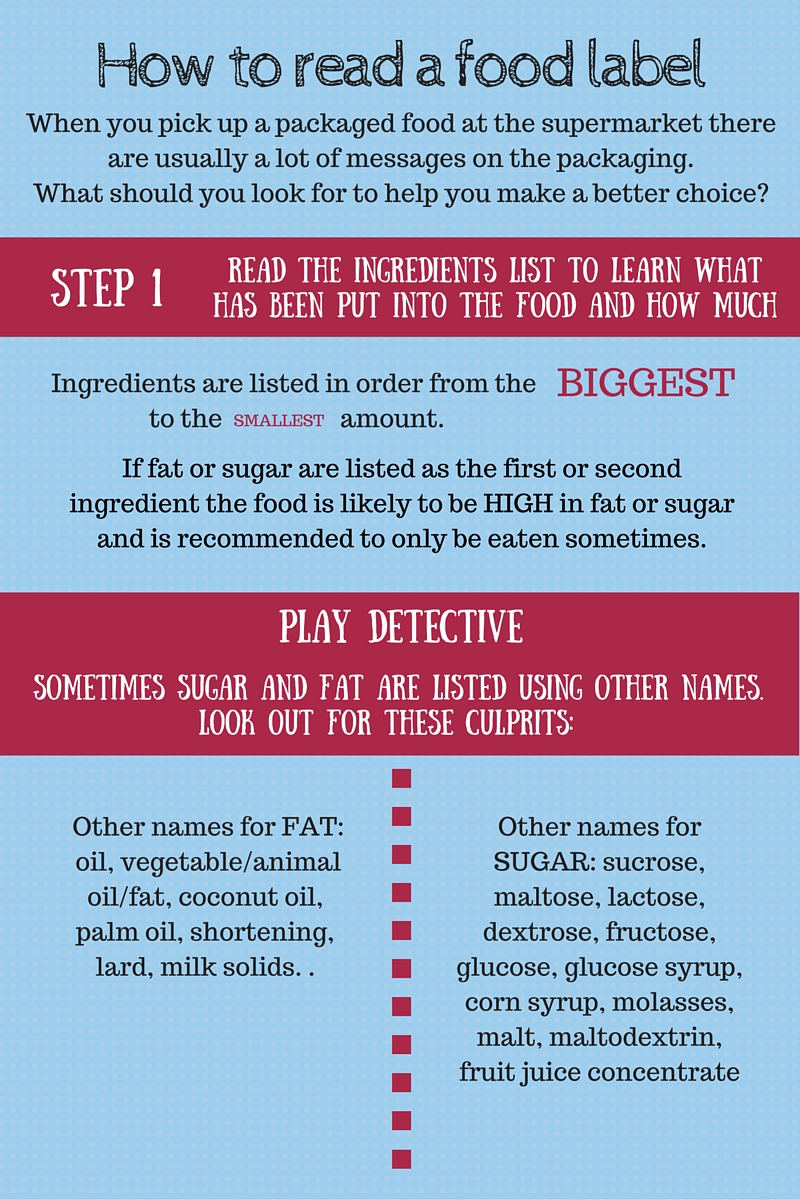


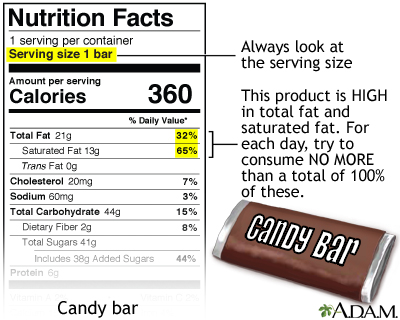
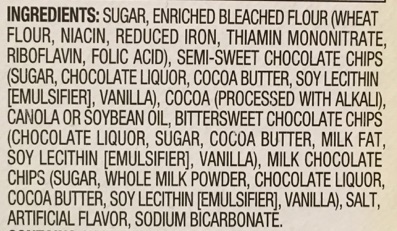

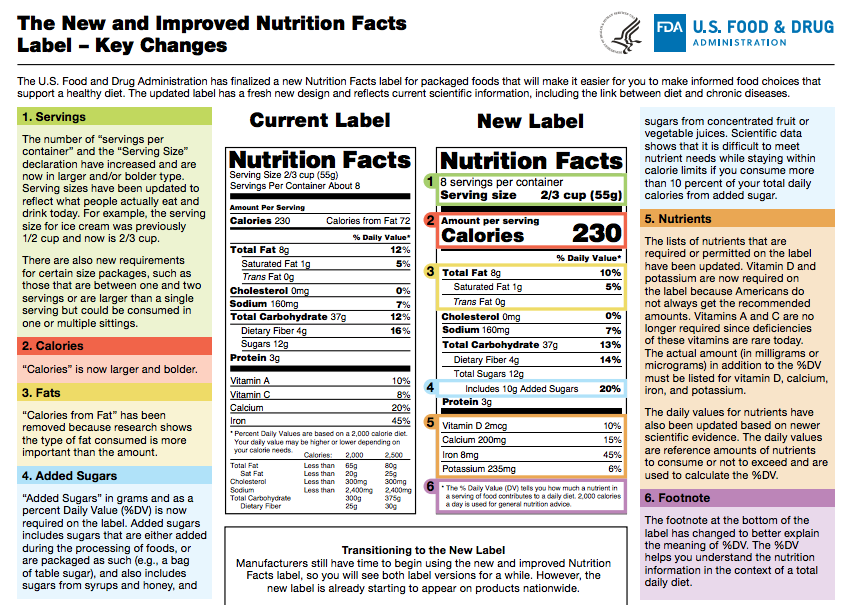
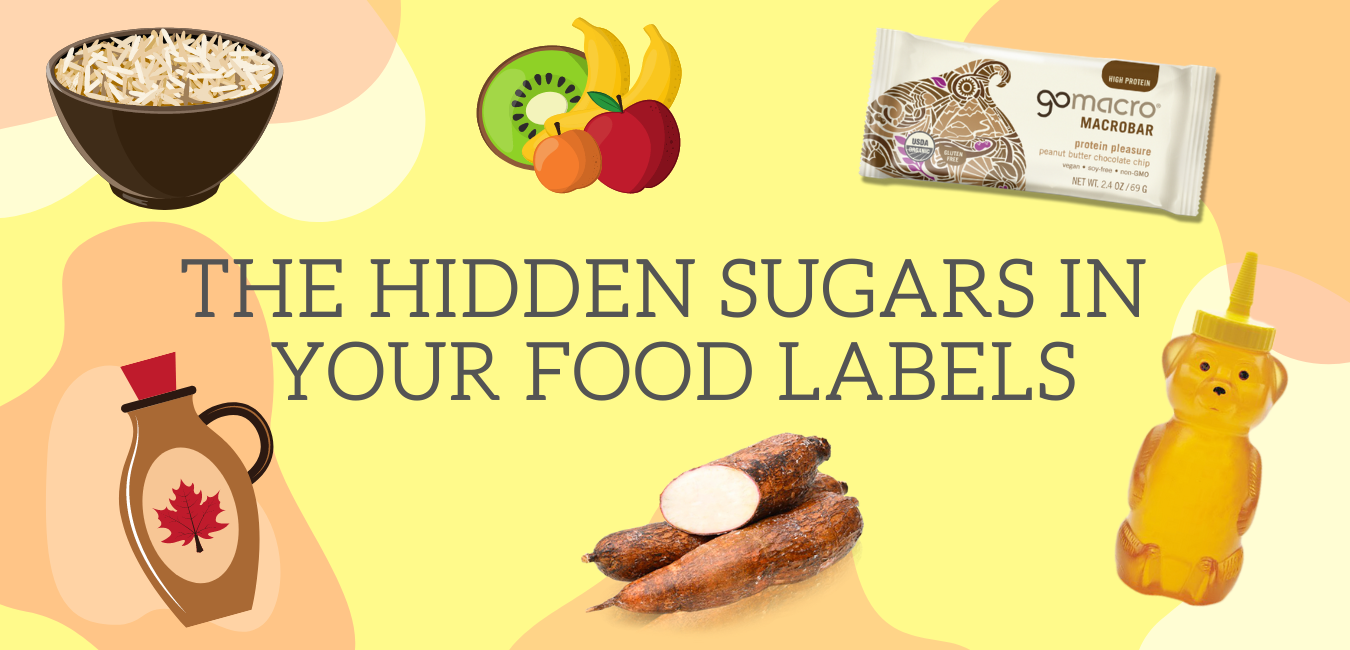


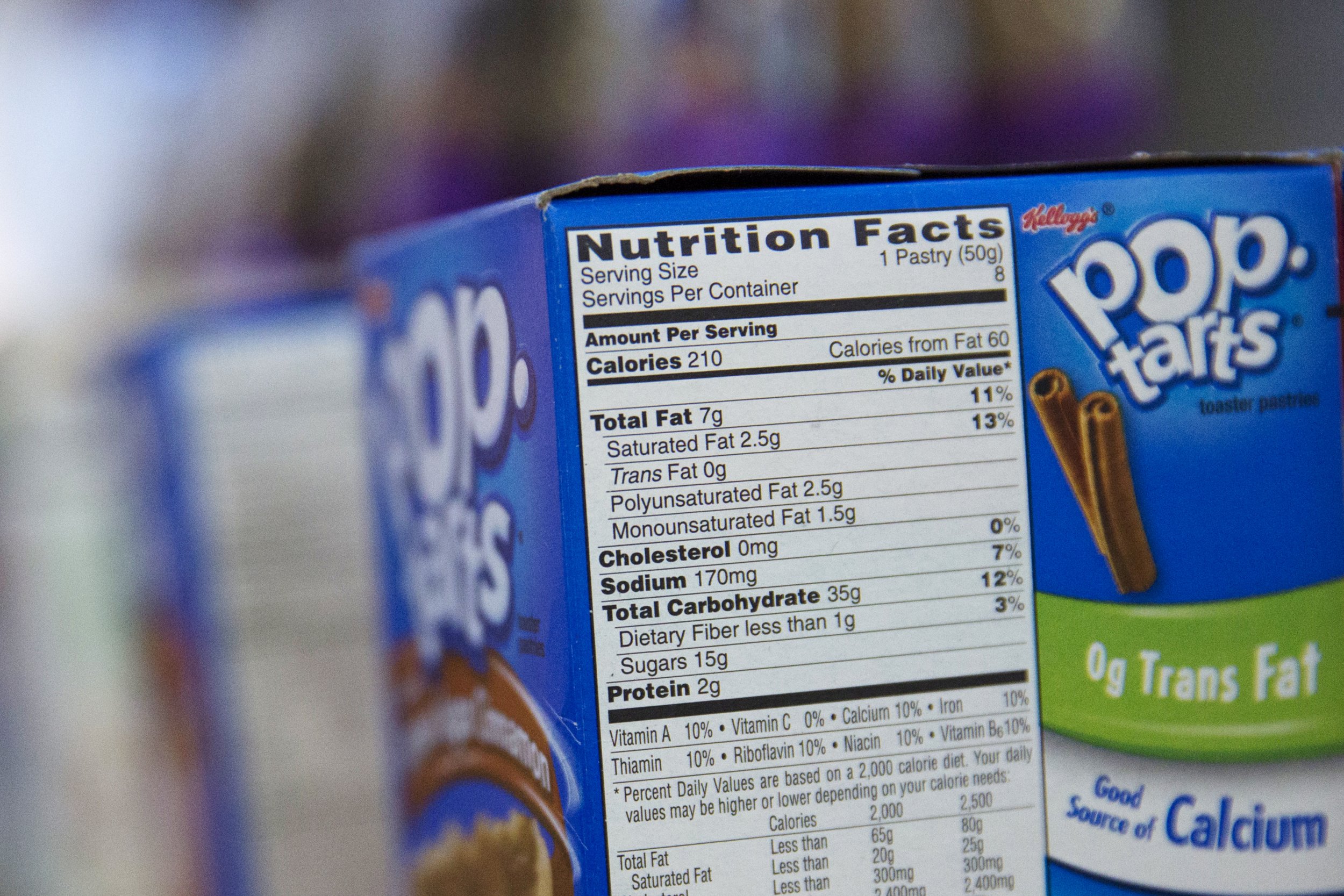

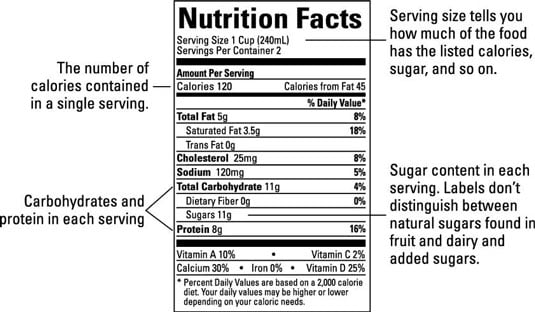

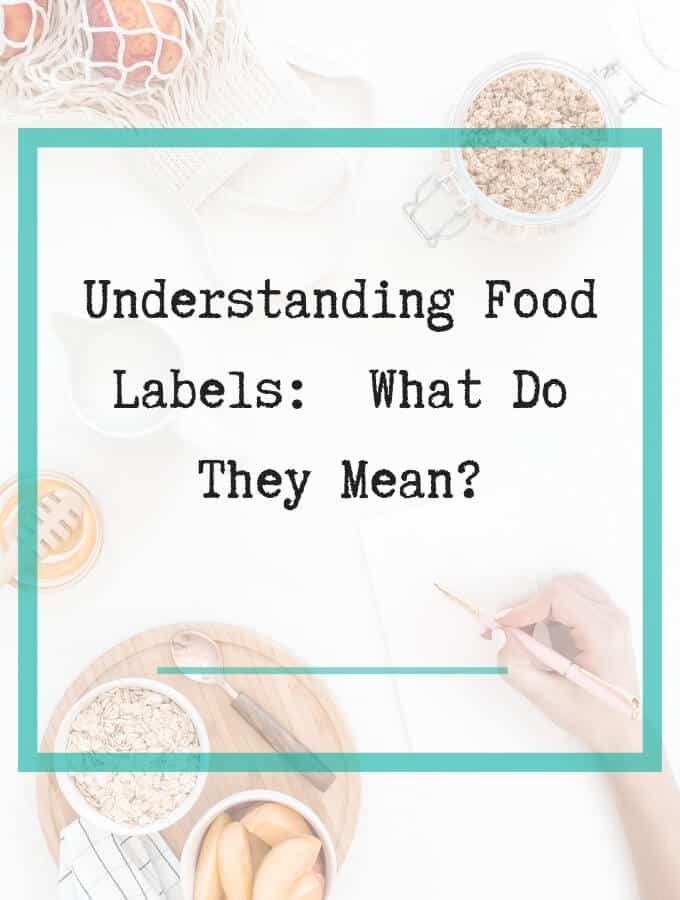
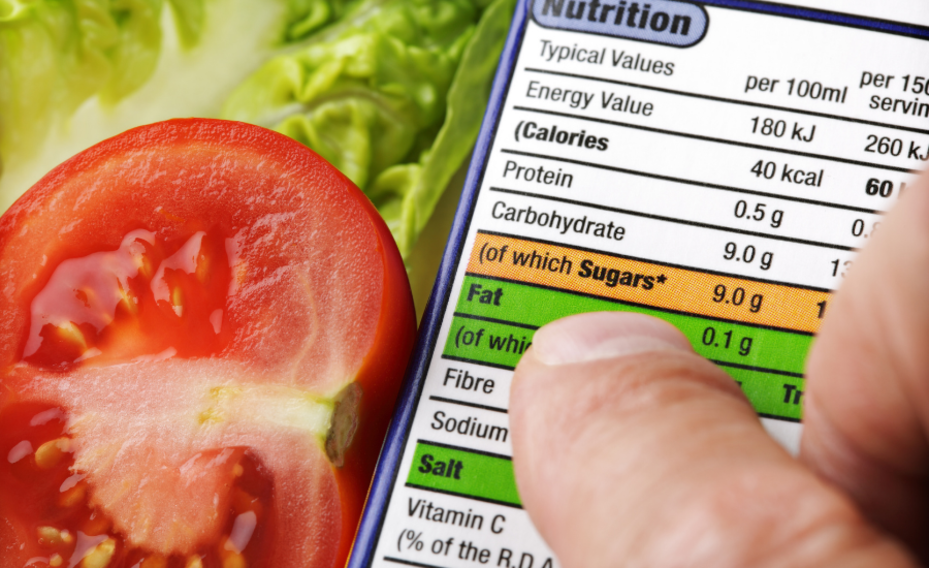
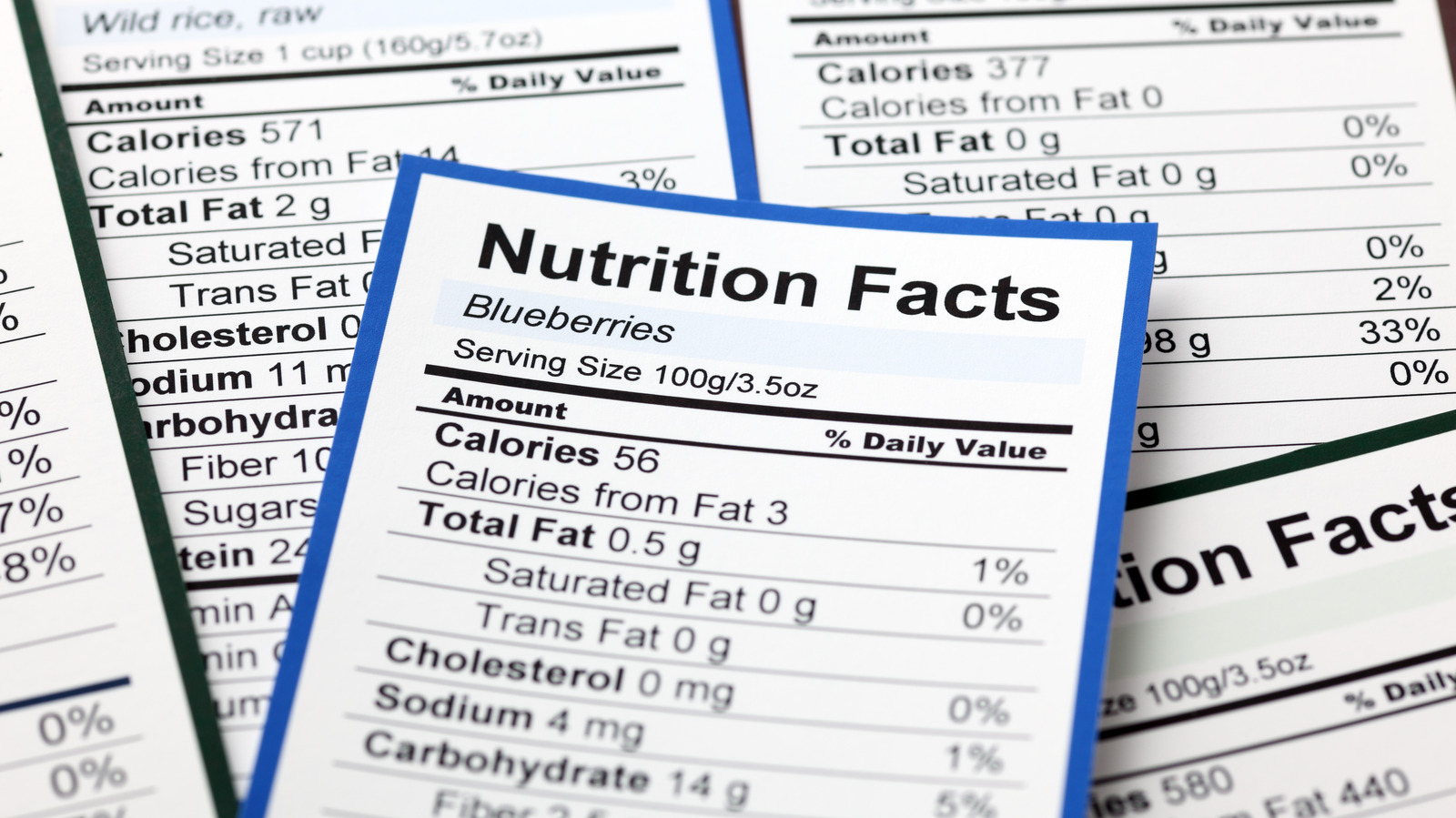

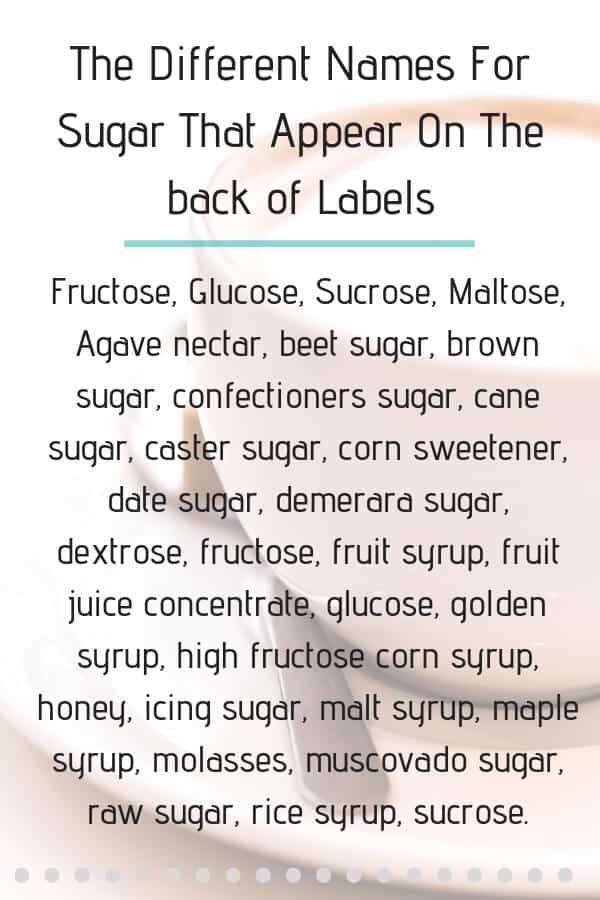
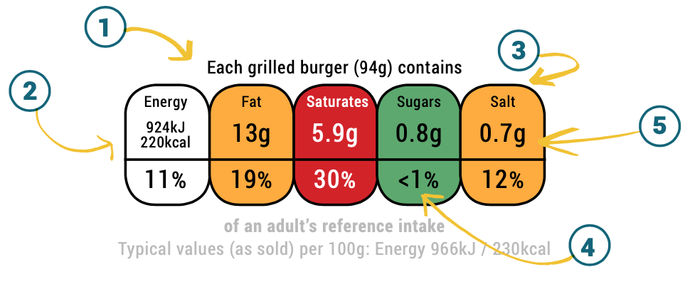
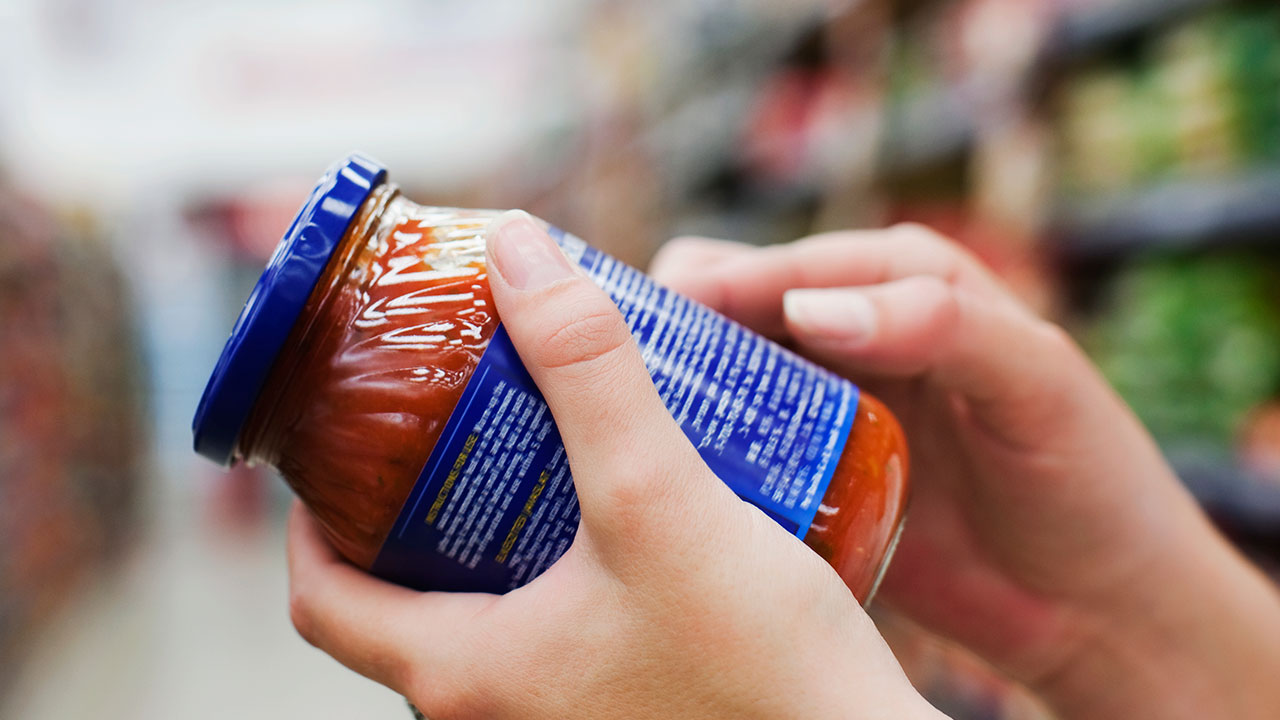

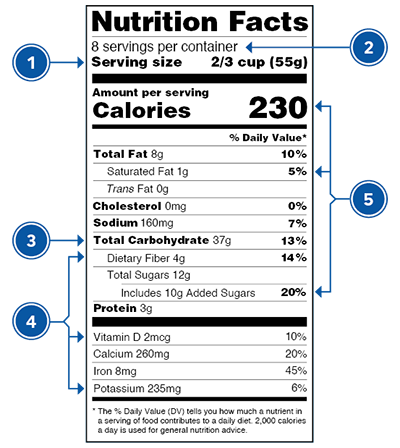
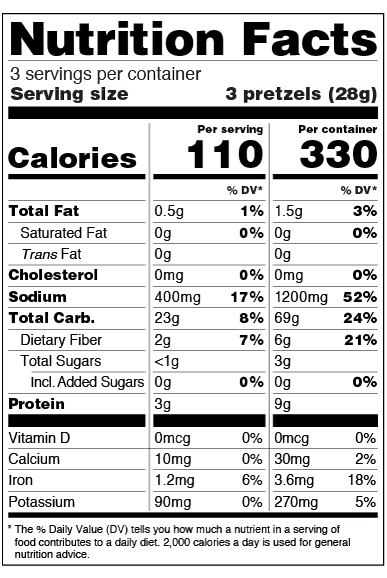
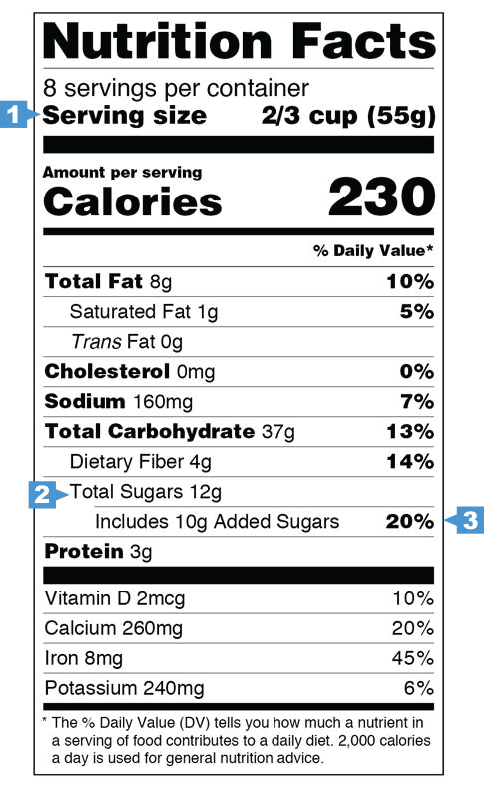




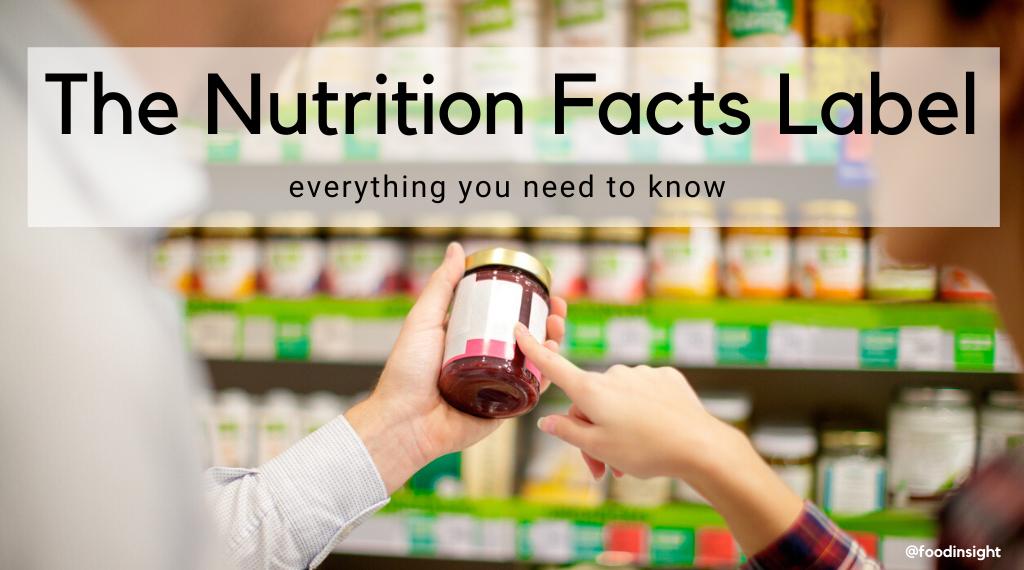
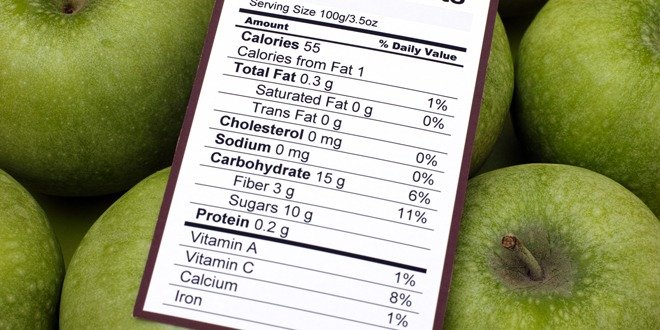





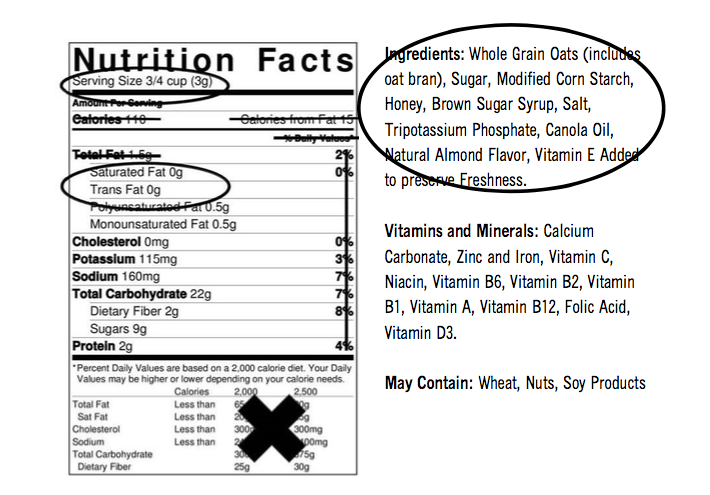

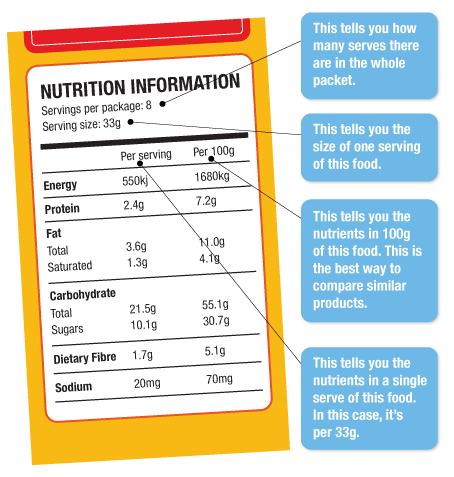

Post a Comment for "42 understanding sugar content food labels"